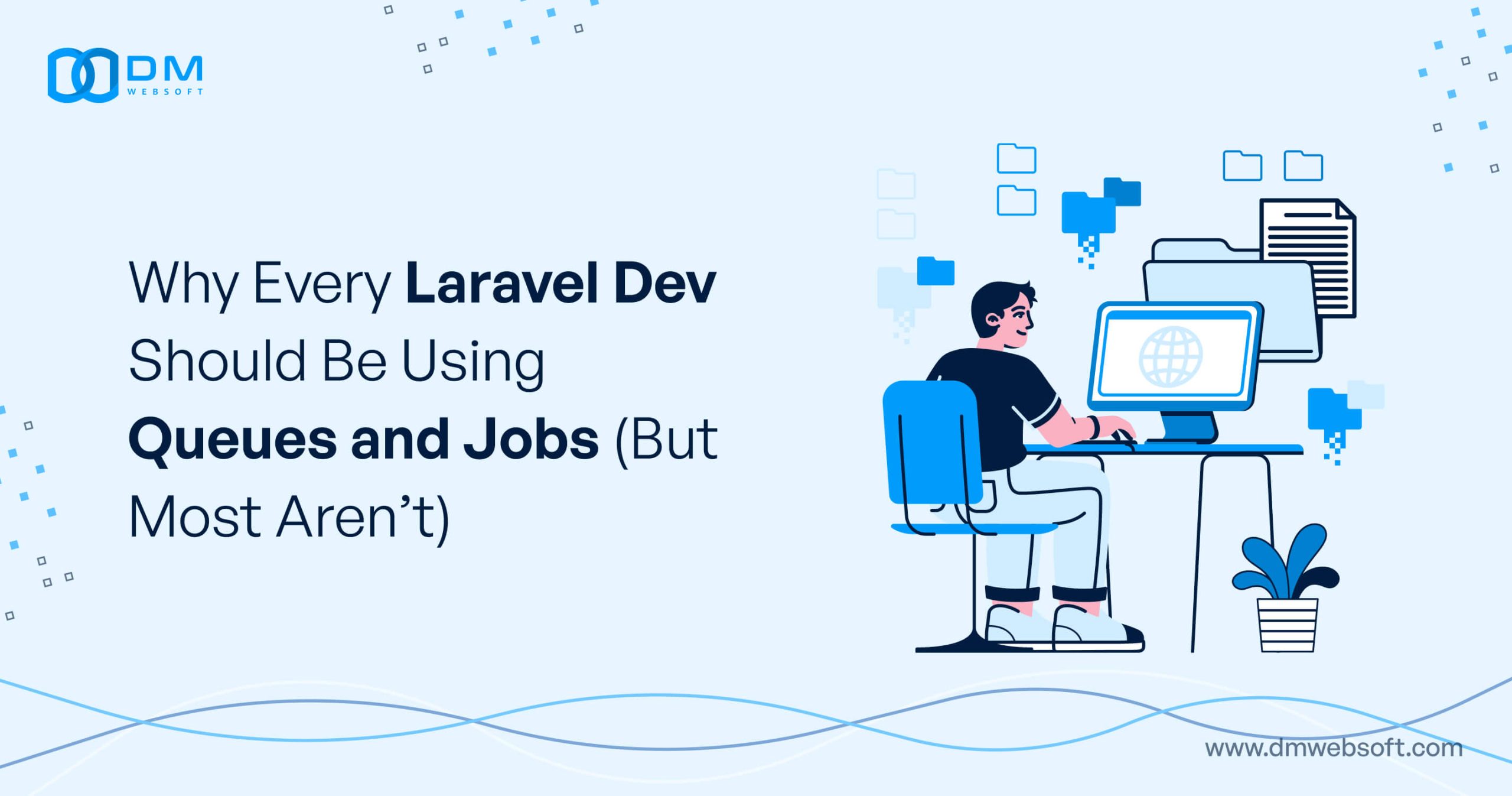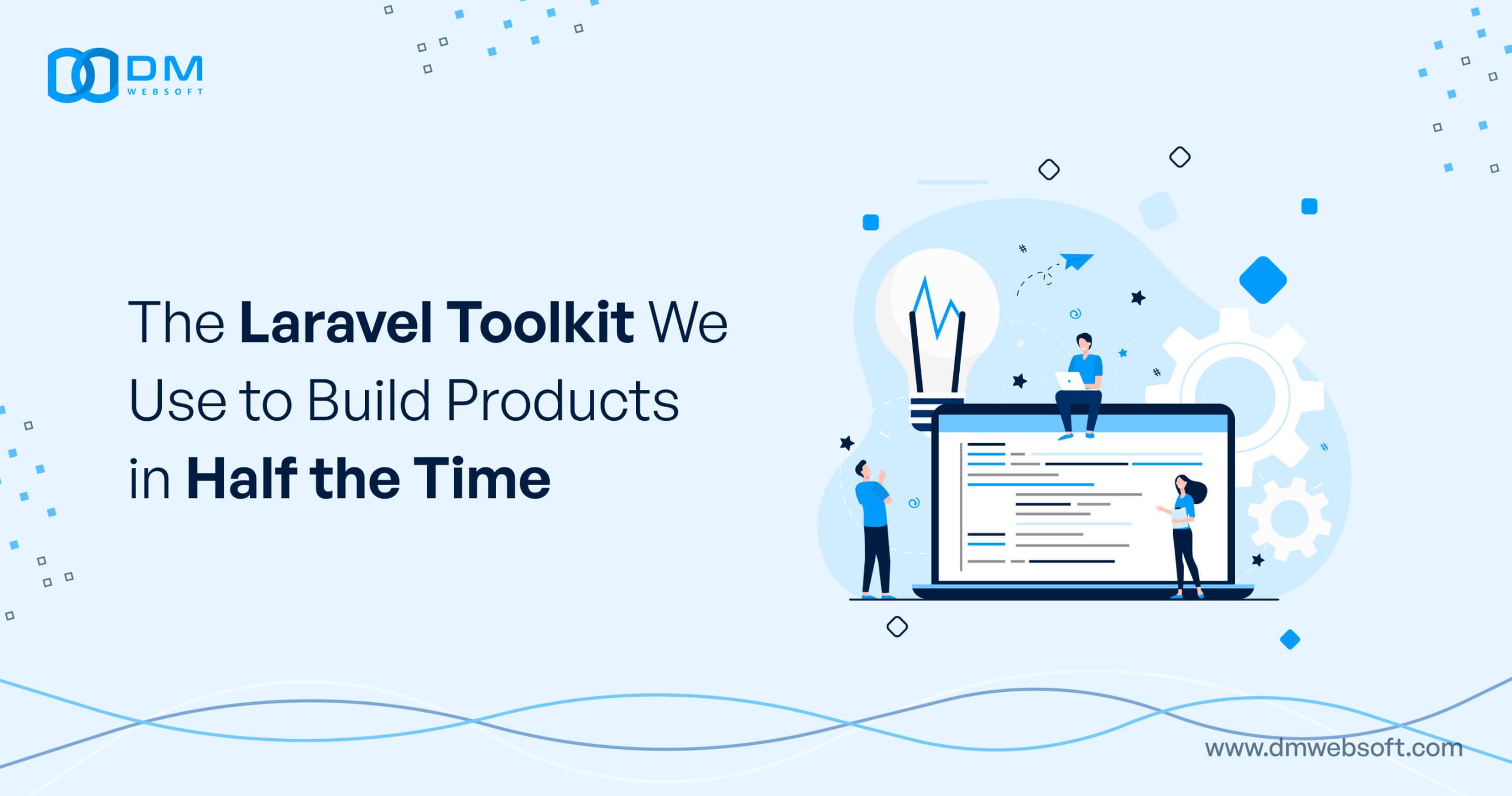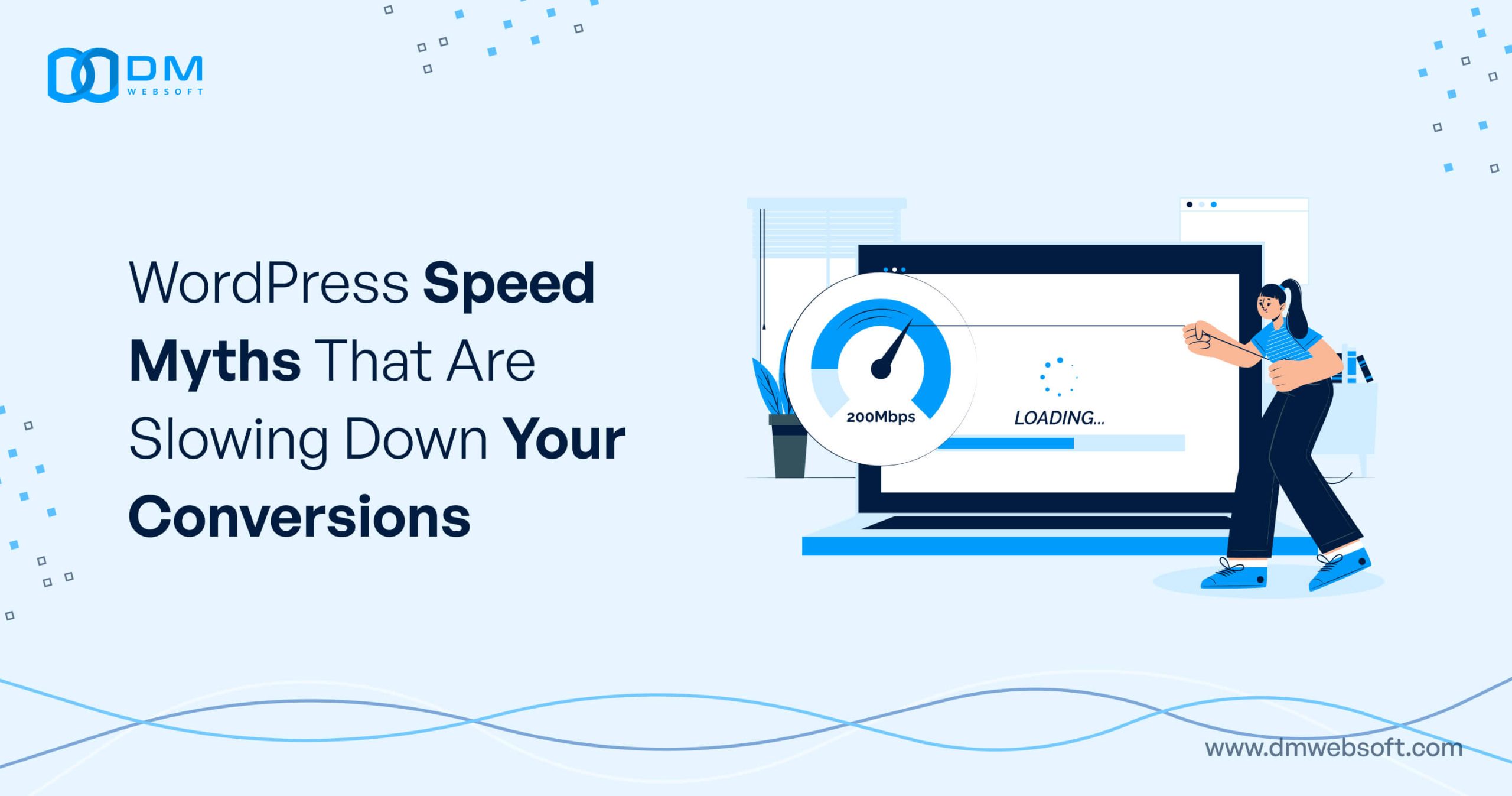DM WebSoft LLP exceeded our expectations! Their seasoned team of experts delivered a website that perfectly captures our brand essence. Their 15+ years of experience truly shine through in their exceptional web development skills.
Designing RESTful APIs: Best Practices and Common Pitfalls

TABLE OF CONTENT
Introduction to Importance of REST APIs in Modern Web Development
What is a RESTful API and Why is it Important?
Best Practices for RESTful API Designing
RESTful API Design Pitfalls
How DM WebSoft LLP Can Help in Building Effective RESTful APIs
Conclusion: Becoming a Master of Designing RESTful
Why DM WebSoft LLP?
Get in Touch
Introduction to Importance of REST APIs in Modern Web Development
At the dynamic landscape of web development, really strong and effective APIs have to be built for the smooth integration and communication of software systems. Reason behind the distinction of RESTful APIs among the large number of designs in being simple, scalable, and flexible. Understanding and applying best practices in the implementation of a RESTful API is essential in the development of an effective, reliable, and maintainable system.
How is RESTful API defined?
REST is an architectural style for building applications in which client–server communication takes place using standard HTTP methods. The core idea behind RESTful APIs is to use the stateless nature of the HTTP protocol; this actually helps in scaling an application horizontally. It is built on sound architectural principles with regard to performance and scalability, with just a sprinkle of simplicity, enabling developers to build APIs that are both easy to work with and easy to maintain.
Why Should We Care About RESTful APIs?
RESTful APIs have now become part of the basics in modern web development because they have the ability to cope with wide scopes of tasks, covering basic CRUD operations through to implementing elaborate business logic. What further adds to their importance is their adoption in areas such as e-commerce, healthcare, finance, social media, among others. With rich experience in development and API design creation, DM WebSoft LLP has an established record in creating top RESTful APIs that drive business success.
Our experienced team practices the best methods to develop secure, scalable, and maintainable APIs. DM WebSoft LLP certainly has the experience in developing new APIs or optimizing existing ones from scratch. This partnership offers you the ability to deal with someone with years of hands-on experience in the field, thereby keeping you at a competitive edge in this digital environment.
What is a RESTful API and Why is it Important?
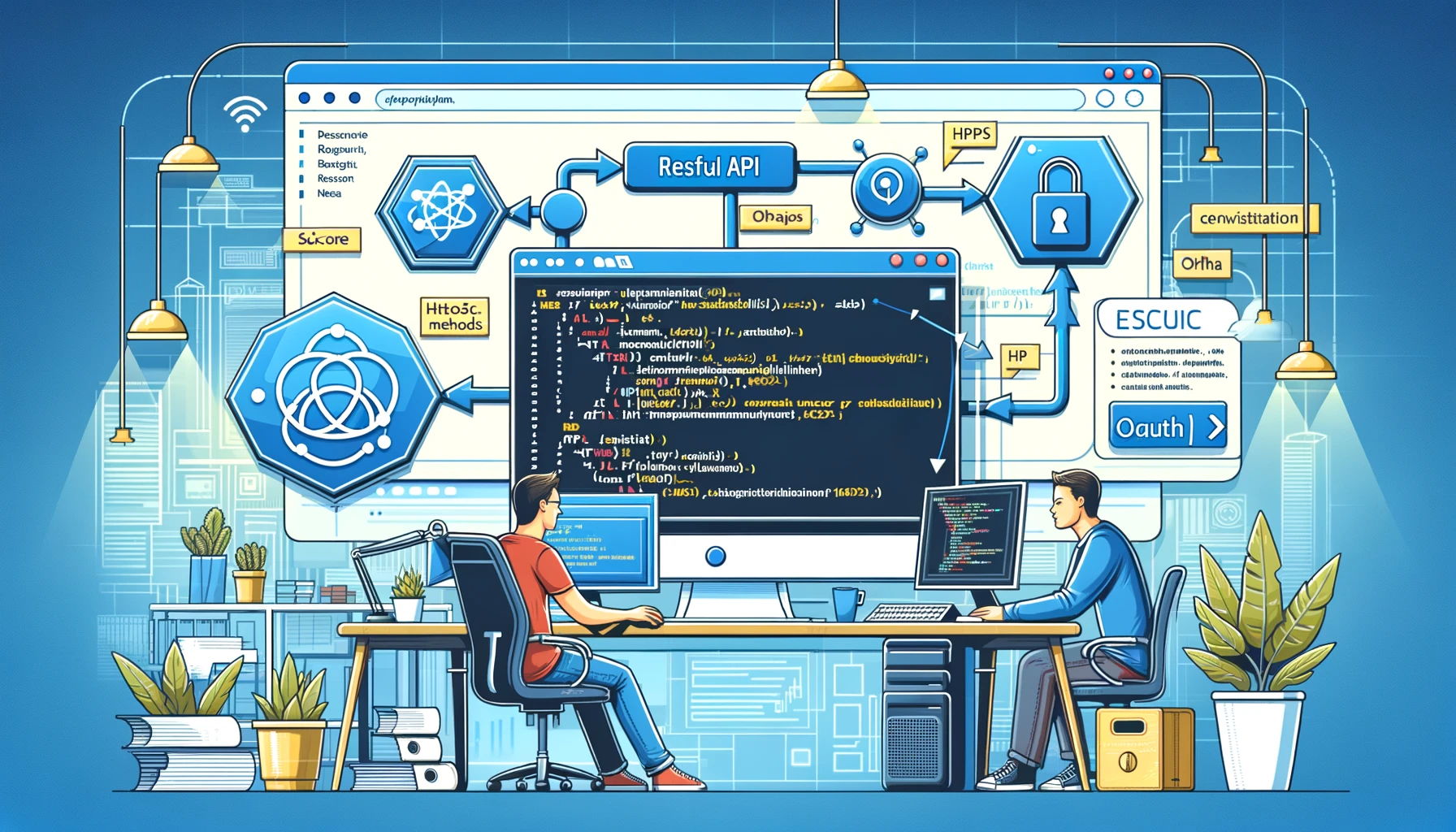
RESTful APIs, or Representational State Transfer APIs, provide a set of guidelines and best practices for developing web services that enable the client to communicate with the server in a stateless manner using standard HTTP methods. RESTful APIs are stateless, scalable, and adaptive in design, fitting well in a good number of applications in web development.
Basic Principles of RESTful APIs
Below are six core principles on which RESTful APIs stand:
- Stateless: Each client request to the server should carry enough information to understand it, and the server should process it without the need to remember any client request context. This is needed for the server to scale much better.
- Uniform Interface: RESTful APIs follow a predefined interface for interaction with the server, including the standard methods from HTTP. For example, GET, POST, PUT, and DELETE represent certain actions on resources.
- Resource Identification: URIs identify the resources pertaining to RESTful APIs. Most of the time, these are represented as JSON, which is easy to parse and use on almost all platforms or programming languages.
- Representation: Representation is sent from the server to the client in some easily readable and processable form of a resource. Generally, this format is in JSON or XML.
- Layered: REST APIs are designed to be layered, so clients could interact with servers through intermediaries like proxies and gateways, which result in increased security and scalability.
- Response cacheability: If a server response can be determined to be cacheable or non-cacheable, it is in the interest of good performance that the work to achieve the response not be done by the server repeatedly for requests that have substantially similar responses.
The importance of RESTful APIs in modern web development
RESTful APIs have proven to be the backbone of modern web development. Here are some reasons why RESTful APIs are important:
- Interoperability: The easily understandable and usable RESTful APIs use standard HTTP methods and status codes between different systems, regardless of the platform or programming language in use.
- Scalability: RESTful APIs are stateless and allow multiple layers, hence being scalable by allowing many requests to be handled at a go.
- Malleability: RESTful APIs can be bent in a wide variety of formats, from JSON to XML, for use in applications from web and mobile right into the IoT.
- Easy integration: RESTful APIs offer the ability to integrate third-party services or applications, which further enriches the business functionality and brings ease to it.
An Indirect Sales Pitch
A RESTful-oriented application programming interface was one of the important parts in the current scenarios of web development. Our in-house professionals are vigorously capable of developing RESTful APIs by adhering to the best practices to make sure the applications developed are scalable, safe, and free from integration problems with other systems. Work with DM WebSoft LLP for services that are outclassed in the area of API development, making sure that your business remains afloat in this highly competitive digital world.
In this blog, with our discussion on best practices in designing REST APIs, we’ll take a look at pitfalls to avoid. Understanding the principles will help one learn how to come up with APIs that aren’t only effective and reliable but also future-proof. So stay along as we dive deep into the intricacies of designing great RESTful APIs and have insights that will take your class of web development projects to new heights.
Best Practices for RESTful API Designing
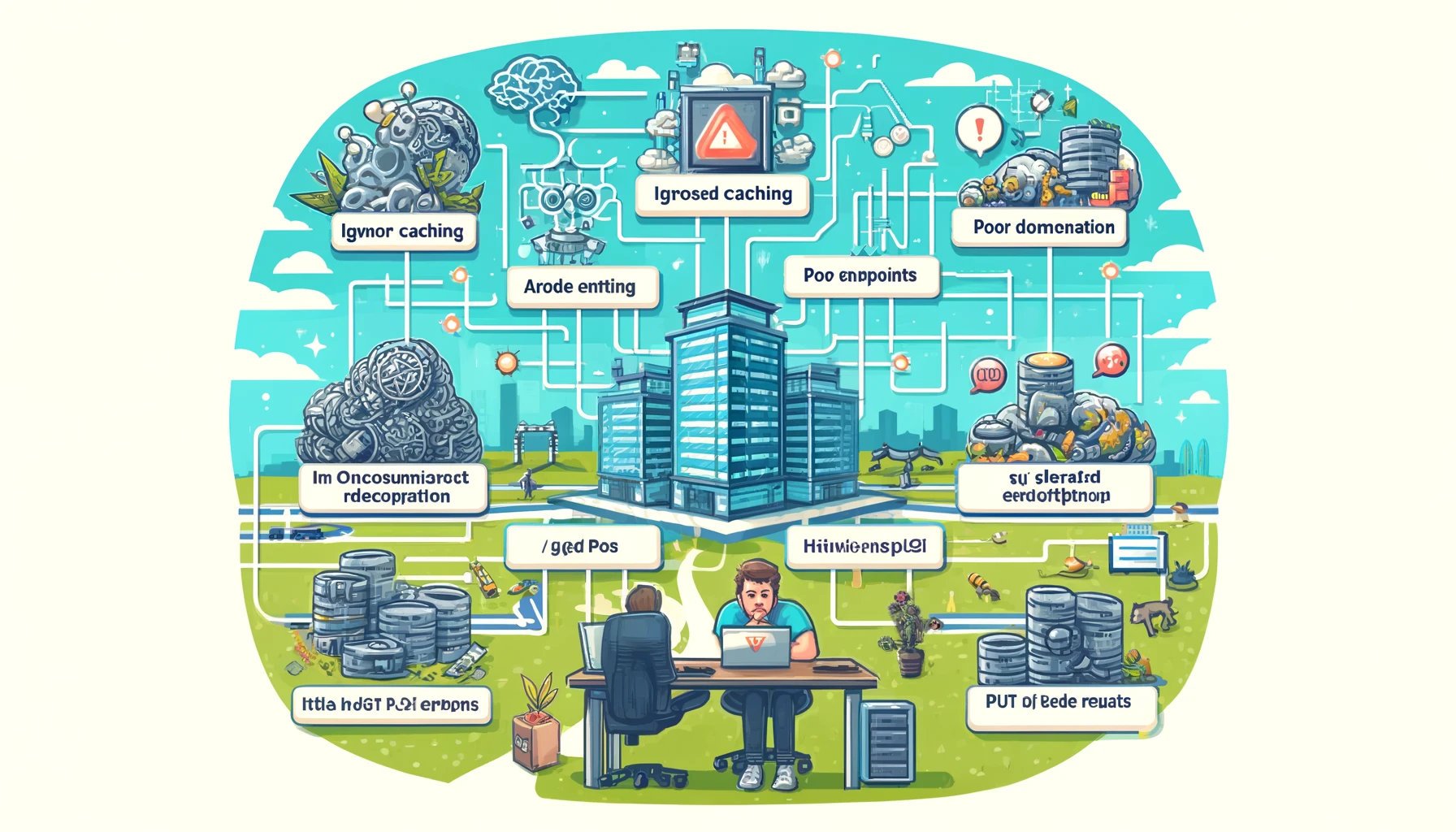
A strong line of best practices sets up the capability, performance, and maintainability of RESTful APIs. Listed below are the top best practices in RESTful API design which will make your projects flourish.
Simplicity and Conformance to REST Principles
A key rule in REST API design is simplicity. If you keep your API simple, developers will easily get your API. There are a couple of ways in which one can achieve simplicity:
- Clear Identification of Resources: Use nouns to identify the resources in your URIs (e.g., /users, /products). Do not use the verbs since HTTP methods (GET, POST, PUT, DELETE) are going to identify the actions specifically.
- Stateless Operations: Since the server is not supposed to maintain or store any state in between the requests, each request from a client should contain all the necessary information. This makes the server scalable and easy to write, because it does not have to save context information.
Use standard HTTP methods for all possible operations. Use GET as much as possible for fetching data, POST for creating resources, PUT for updating, and DELETE for removing them. Such kind of consistency makes your API more predictable and easier to work with.
Versioning and Status Codes
Good versioning and status codes usage are essential for an API that is maintained and evolving:
- Versioning: This is the addition of versioning to your API. It allows you to manage changes and updates to your API without breaking clients that have already started consuming your services. The most common practices usually involve adding a version to the URL.
- Proper Status Codes: The standard HTTP status codes should be used, indicating the result of the API request. Codes like 200 (OK), 201 (Created), 400 (Bad Request), 401 (Unauthorized), 404 (Not Found), and 500 (Internal Server Error) give perfect communication to the result of the request to the clients.
Consistency and Naming Conventions
Consistency in naming conventions and response formats enhances readability, usability, and applicability:
- Meaningful and consistent naming: Make sure to use meaningful constant naming within URIs, parameters, and fields of a response. Unambiguous naming in parameters and fields across all responses avoids confusion and helps developers easily understand the structure and usage of your API.
- Generalized Answers: Employ a generalized answer format that should be a JSON. Both are easy to parse and widely supported. Make sure to systematically represent any metadata or structure of the response.
Security and Performance Tuning
Design your APIs with security and performance. Properly secure your APIs, then optimize them for performance; do this to make sure that your APIs are safe and effective.
- Put security measures in place: Implement HTTPS for always providing secure transmission of sensitive data. Implement mechanisms controlling API access, such as authentication and authorizations that include, for example, OAuth. Prevent any injection attack by validating and sanitizing user input.
- Optimize Performance: Increase the performance of your API by including caching operations, like HTTP caching headers and ETags. Optimize payload size and database query by responding with only the important data.
At DM WebSoft LLP, we specialize in designing and conforming to best practices in RESTful APIs. We have a highly experienced team of developers who can make your API simple, consistent, secure, and high performing. DM WebSoft provides you a dedicated partner for API development needs committed to delivering solutions helping in enhancing the functionality and user experience of your application.
You will improve the quality and reliability of your RESTful APIs, and as such, their maintainability and scalability—not to mention leveraging well-established best practices. Stay with us so we can further detail some of the common pitfalls when designing RESTful APIs and how to avoid them to ensure your APIs are robust and future-proof.
RESTful API Design Pitfalls
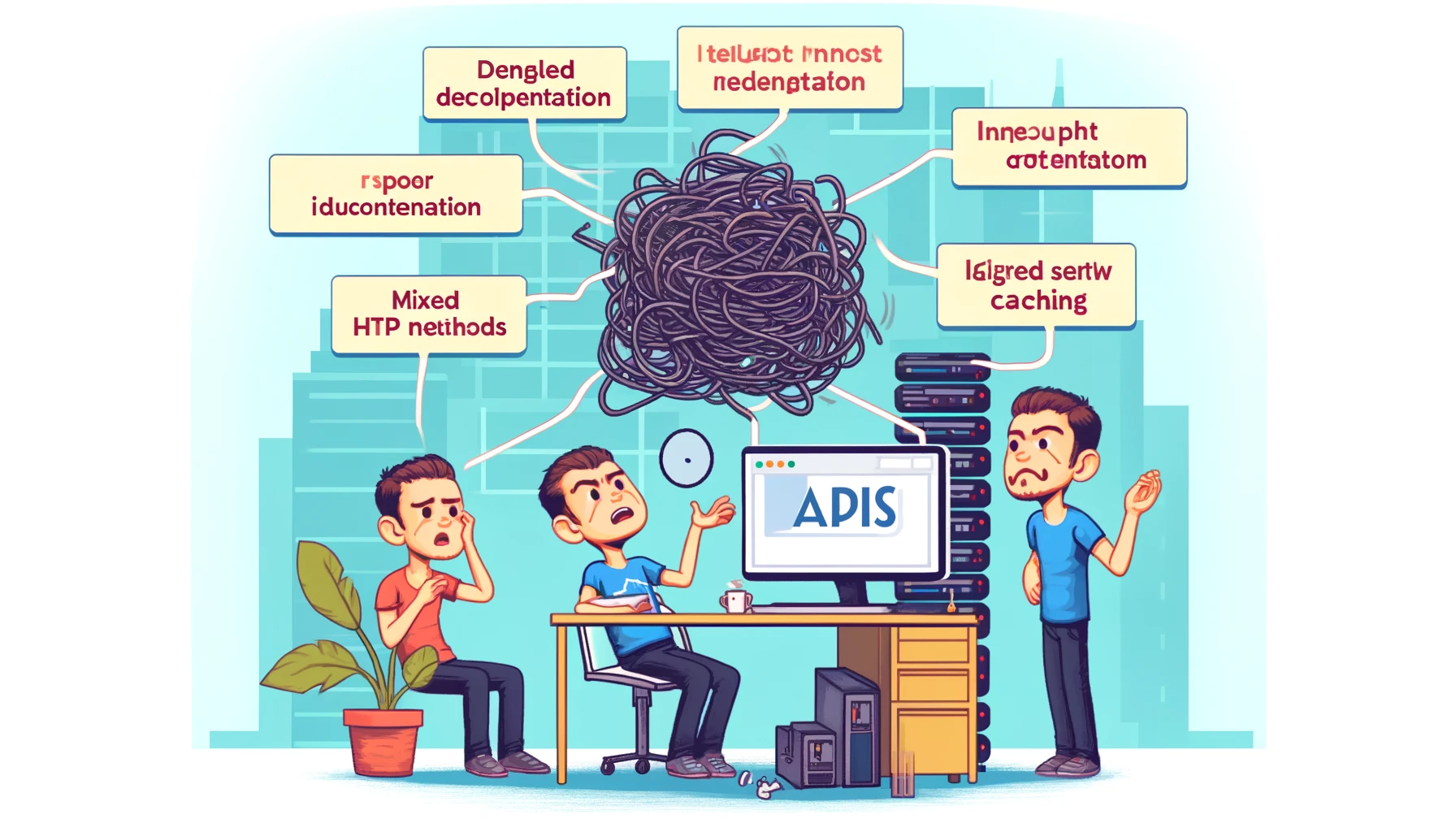
Of course, beware some common API design pitfalls that can lead to ill performance, poor scalability, and/or weak maintainability when designing RESTful Web APIs. Understanding these pitfalls enables a developer to take proactive measures to avoid them, so one could be sure that the API will remain robust and efficient.
Ignoring Caching and Documentation
Caching and good documentation are often underrated problems in the design of APIs, and they do have their relevant impact on performance and usability.
- Ignoring Caching: One of the greatest advantages of RESTful APIs is the inherent caching of responses to make them faster. But not putting in cache strategies leads to unnecessary load on the server and increases response time. Use HTTP caching headers and techniques like ETags to enable efficient caching.
- Poor Documentation: Documentation is key to enabling proper understanding and use of your API by developers. A lack of clear, detailed documentation can result in the misuse of an API and increased support requests by developers. Be sure to have descriptions for endpoints, examples of requests and responses, error codes, and usage guidelines in your API documentation.
Overloading Endpoints and Introducing Inconsistent Ways
In RESTful API design, the balance must be maintained between functionality and simplicity. Overloading of endpoints and a lack of consistency in using HTTP protocol methods are things that usually create confusion and inefficiencies.
- Overloading Endpoints: Trying to fit too much functionality into one endpoint causes your API to be cumbersome and maintainable. Rather, write separate endpoints for different resources and actions. This way, the API is clearer, and the documentation is easier to write and understand at the same time.
- Inconsistent HTTP Methods: Keeping every HTTP method consistent is a major key in developing predictable and intuitive APIs. GET to retrieve, POST to create resources, PUT for an update, and DELETE for removing resources. Otherwise, the problems can easily mislead one for doing errors during real implementation.
What Backward Compatibility and Client-Server Separation Lack
Backward compatibility will be an important element in keeping success over time, and from a client-server separation point of view, it is one of the key practices:
- Ignoring Backward Compatibility: Your API is going to evolve, for sure. But it’s also a really bad user experience to introduce breaking changes that might upset clients or disrupt previous behaviors. Implement versioning strategies that ensure backward compatibility and make it evident to users how to follow the upgrade path.
- Neglect of Client-Server Separation: RESTful APIs are designed in such a way that both clients and servers can change and develop independently of each other. Observing this separation makes it possible for a client to know only the endpoints and resources of the API, but nothing about the inner logic or server architecture. This leads to better scalability and greater flexibility.
DM WebSoft LLP takes additional care to avoid such pitfalls in the API development process. Our team of experts ensures that each RESTful API is well documented, optimized for performance, and maintainable over time. Partnering with DM WebSoft LLP means dealing with extensive experience in the creation of APIs that not only work but are also reliable and scalable.
These common pitfalls are well discussed here; avoid them and make your RESTful APIs better in quality and performance. Let’s do this in the next section: Discuss with us how, with DM WebSoft LLP, you can work on building some great RESTful APIs according to your business requirements in order to drive business success.
How DM WebSoft LLP Can Help in Building Effective RESTful APIs
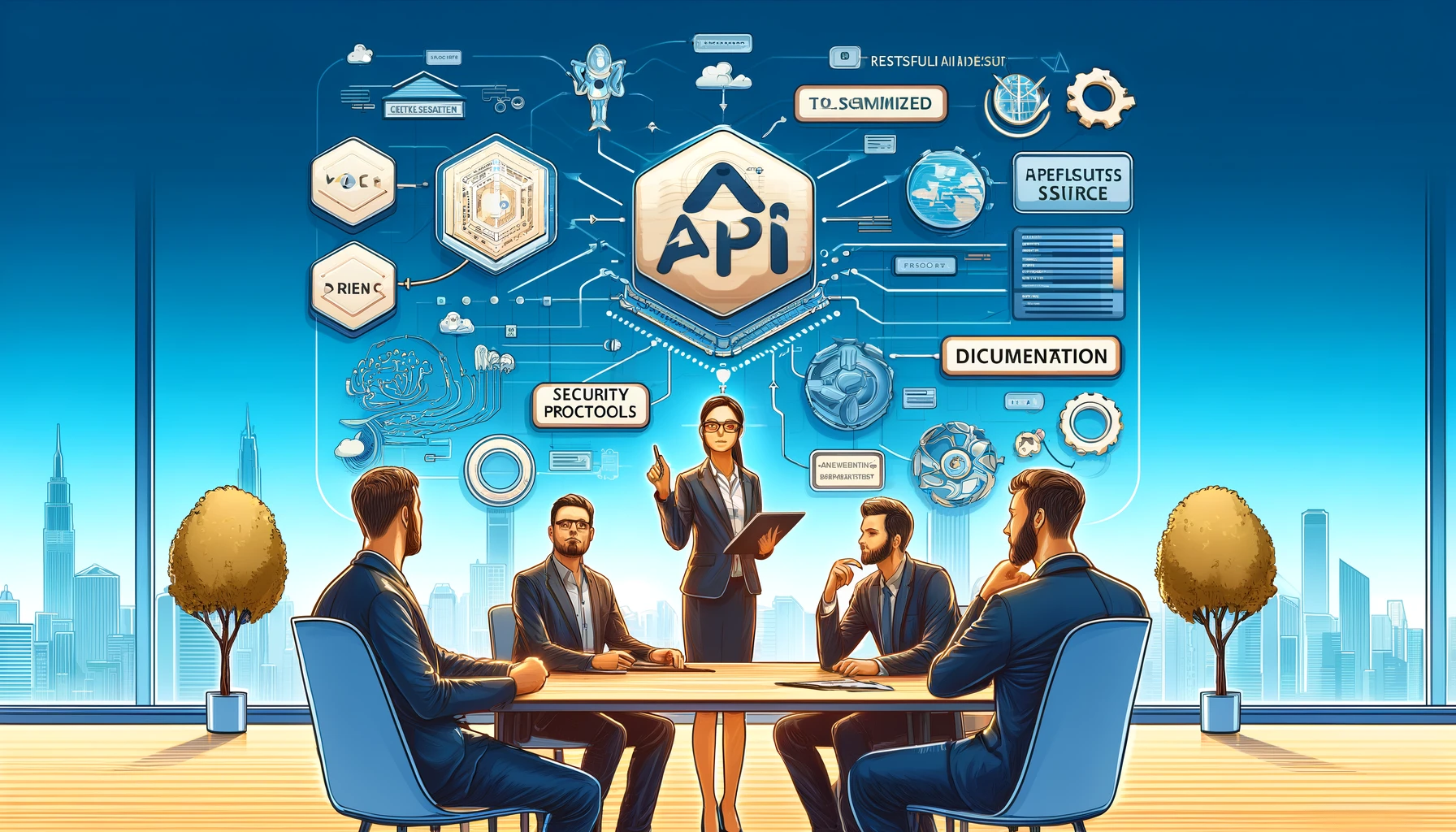
Only knowledge and experience on the part of a partner can result in a robust and efficient RESTful API. At DM WebSoft LLP, we ensure correct crafting of APIs, following best practices, in order to avoid the common pitfalls. This all-round assurance will be that your APIs are not only functional but are scalable, secure, and maintainable.
Our Experience and Services
DM WebSoft LLP is an amalgamation of extensive knowledge and experience that brings about services flexible to suit the nature of your needs:
- Custom RESTful API Design and Development: We design and develop all kinds of APIs according to the business requirements. All the APIs we design will allow smooth and efficient interchange of data with your existing systems.
- API Optimization and Performance Tuning: Performance is one of the key areas for any API. For this, our team performs an in-depth performance analysis and optimization of your API, ranging from the implementation of different caching strategies, minimizing payload sizes, and database query optimization for your APIs to run with optimum efficiency.
- Security: Security is paramount in API design. We incorporate robust security measures such as HTTPS, authentication protocols like OAuth, and input validation to safeguard your APIs from possible threats and vulnerabilities.
- Complete documentation: We provide full and elaborate documentation for all APIs. It includes endpoint descriptions, examples of requests and responses, descriptions of error codes, and guidelines for using in order to easily understand how to consume them.
Why DM WebSoft LLP?
There are a number of compelling rationales for using DM WebSoft LLP for your API development needs.
- Experienced Team: Our professional development team has firsthand experience in designing and developing Restful APIs across various industry domains. We stay updated with insights and technology to execute the solutions that are relevant.
- Approach to Being Customer-Centric: We are more customer-centered than anything out there and even work in synergy with the client to understand their needs. It’s this kind of collaboration that guarantees the delivery of solutions that work for your business goals and are really valuable.
- Proven Track Record: We offer our customers an up-to-date API that enjoys proven business success. Application performance and scalability enhancement with our API solutions are outstanding, and so too is the ultimate user experience.
Success Stories
Although in this blog post, we will not talk about real case studies, on the other side, it is worth mentioning that API solution implementations have been delivered to many customers in different industries by DM WebSoft LLP. To mention these stories of success: on the one hand, we tell that the capability of delivering the API to meet strong performance and security standards is on a comparable level, while on the other hand, giving great integrations.
An Indirect Sales Pitch
At DM WebSoft LLP, we are committed to helping businesses harness the power of RESTful APIs to build world-class applications in achieving their objectives. With our specialist experience with years in this domain, we will design, develop, maintain, and optimize a highly innovative API to execute any business need. Engage us to guarantee that your APIs are designed with best practices, away from the common pitfalls, and built on a sturdy foundation for your tours into the digital world.
Conclusion
In this blog, we have discussed the prominence of RESTful APIs, best design practices, common pitfalls to avoid, and how DM WebSoft LLP can help you build APIs that get the job done. You will be able to actually put together APIs that are not just functional and reliable but also scalable and secured by following these standards and using our skills. Reach out to us today for more information on our API development services.
Conclusion: Becoming a Master of Designing RESTful
Truly effective RESTful APIs lean more towards being an art than a science. It is deep knowledge about basic REST principles, best practices, and pitfalls that allows developers to build APIs functional, efficient, scalable, and maintainable in use.
Summary of Key Points
Here are several important aspects of design for a RESTful API that were covered in this blog:
- Significance of RESTful APIs: Starting off, RESTful APIs are really important in modern web development. These APIs make interoperability between systems much easier and help to develop rather large, flexible, and efficient applications.
- Best Practices: We thus touched on some of the fundamental best practices while designing RESTful APIs, which should have clear resource identification, consistent use of HTTP methods, effective versioning, correct status codes, consistent naming conventions, and reliable security measures. This way, your implementation will be user-friendly, maintainable, and scalable.
We have discussed some of the common pitfalls that developers need to avoid: ignoring caching and documentation, overloading endpoints, inconsistency in the use of HTTP methods, not allowing for backward compatibility, and not respecting the separation of concerns between client and server. All this helps avoid the pitfalls that greatly affect the performance and reliability of your APIs.
How DM WebSoft LLP Can Help: We demonstrated that DM WebSoft LLP could help to create effective RESTful APIs. Our experience in developing custom APIs, optimizing performance, incorporating security, and documenting extensively lifts APIs to the highest standards.
Call to Action Designing RESTful APIs that are in compliance with best practices and avoid common pitfalls can significantly improve the performance, scalability, and security of the application. DM WebSoft LLP is devoted to ensuring this. We have a team experienced in this, and we’re willing to partner with you and develop APIs that address your business needs.
Be it your quest to develop from the ground up a new API, optimize the existing ones, or making sure that your APIs are secure and well-documented, with expertise and experience, DM WebSoft LLP delivers. Selecting us will provide you with the benefits of our commitment to quality, client-centric approach, and long successful history.
An Indirect Sales Pitch
We do realize that well-designed RESTful APIs are the heart of modern web applications. Our custom API development service aims to help you with scalable, safe, and efficient solutions that help progress your business. Contact us today so we can help you master the art of RESTful API design and get closer to your business objectives.
Final Thoughts
A well-crafted web app is the result of a RESTful API developed with respect for good practices, meanwhile distanced from most of the common pitfalls. Following these tips exactly as shared in the blog and taking up the full package of the experience of DM WebSoft LLP, you would be in a position to get your APIs designed up to what we assert to be a gold standard, standing you in good stead as the base for your digital initiative. For clients to get in touch with us today and discuss their API development needs, learning how to excel in the digital sphere would be to a large extent very beneficial.
Why DM WebSoft LLP?
Designing a RESTful API that is built to last demands engineering, skill, and precision in understanding best practices. Here at DM WebSoft, we strive in every way to empower clients with top-of-the-line development services in APIs, setting applications on a robust, scalable, and secure journey. Our expert developers can handle all phases of API development, from initial planning and development to optimization and maintenance.
- Knowhow and experience: Our web development staff forms a strong knowledge base for each project. We also keep ourselves informed on the latest trends and technologies so your APIs are developed using leading practices.
- Customized Solutions: We understand that no two businesses are alike. We provide API development services tailored to your requirement to perfectly integrate into your system or workflow.
- Full lifecycle support: From consultation to post-launch, we offer services at every level of engagement that are sufficient to the successful completion of each stage of the API lifecycle. Our end target is to ensure that your APIs are not only functional but efficient and easy to use.
- Proven Success: A portfolio of successfully completed projects testifies to the unsurpassed ability of our APIs to let a business prosper. Our clients rely on such solutions not only to enhance their growth but also to remain paralleled to it.
Our Services
- API Development: Design and develop RESTful APIs for your own business needs. Our APIs are designed to fit best so they can easily integrate with your present setup and ensure reliable communication between the applications.
- API Optimization: Our performance tuning services make sure that your APIs are high-performing by using the right strategy in caching, optimal payloads, and quick response time.
- Security Implementation: We have implemented strong security for the protection of your APIs. We encrypt HTTPs, enable OAuth security authentication, and use exhaustive input validation techniques.
- Documentation and Support: Comprehensive documentation and continuous support guarantee an API that is lightweight and easy to understand and use. This documentation includes descriptions of endpoints, samples of request/response, and error codes.
At DM WebSoft LLP, we pride ourselves in delivering not just the usual API development services, but also services that drive business. Our commitment to quality, client-centered approach, and experience position us as the best partners for your API needs. Choosing DM WebSoft LLP means you are at peace with the fact that your APIs will be designed using best practices, be free from common pitfalls, and be a sturdy foundation for your digital initiatives.
Conclusion
In this blog, we have explored the importance of RESTful APIs, best practices for designing them, common pitfalls to avoid, and how DM WebSoft LLP can help you create effective APIs. By adhering to these guidelines and leveraging our expertise, you can develop APIs that are not only functional and reliable but also scalable and secure. Contact us today to learn more about our API development services and how we can assist you in achieving your business objectives.
API integration in CodeIgniter involves connecting your CodeIgniter application with third-party services through their APIs to enhance functionality without building everything from scratch.
Key benefits include rapid development times, enhanced application functionality, improved scalability, and cost-effectiveness by leveraging pre-built capabilities that are maintained by external providers.
Handle challenges by ensuring proper authentication methods, managing data format mismatches, dealing with connectivity issues, and implementing robust error handling and debugging practices.
Yes, DM WebSoft LLP specializes in integrating a wide range of third-party APIs with CodeIgniter, offering custom solutions, ongoing support, and expert advice to ensure your application meets its full potential.
Get Started Now !
What’s the Process ?
Request a Call
Consultation Meeting
Crafting a Tailored Proposal
Get Started Now !
Real Stories, Real Results. Discover What Our Clients Say

Working with DM WebSoft LLP was a game-changer for our business. Their technical prowess and innovative solutions transformed our online presence. A highly recommended web development agency with a stellar track record.

We are thrilled with the results DM WebSoft LLP delivered. Their deep understanding of web development coupled with years of expertise ensured a seamless and visually stunning website. True professionals!

In a digital age where first impressions matter, DM WebSoft LLP crafted a website that speaks volumes. The team’s attention to detail and commitment to quality set them apart. Thank you for making our vision a reality.

DM WebSoft LLP’s team demonstrated unparalleled expertise. Their ability to navigate complex technical challenges with ease is truly commendable. Choosing them for our web development needs was the best decision.

Exceptional service, unmatched skills! DM WebSoft LLP stands out as a leading web development agency. Their collaborative approach and commitment to excellence make them our go-to partner for all things web-related.

DM WebSoft LLP turned our ideas into a digital masterpiece. The seamless communication and timely delivery of our project showcased their professionalism. Highly impressed with the level of creativity and skill.

Our experience with DM WebSoft LLP was nothing short of amazing. From concept to execution, their team provided top-notch web development services. A reliable partner for businesses looking to elevate their online presence.

DM WebSoft LLP’s team of tech experts is second to none. Their wealth of experience reflects in the quality of their work. Our website not only meets but exceeds industry standards, thanks to their dedication.

Choosing DM WebSoft LLP was the best investment for our web development needs. Their team’s proficiency, coupled with a customer-centric approach, made the entire process smooth and enjoyable. A pleasure to work with!



